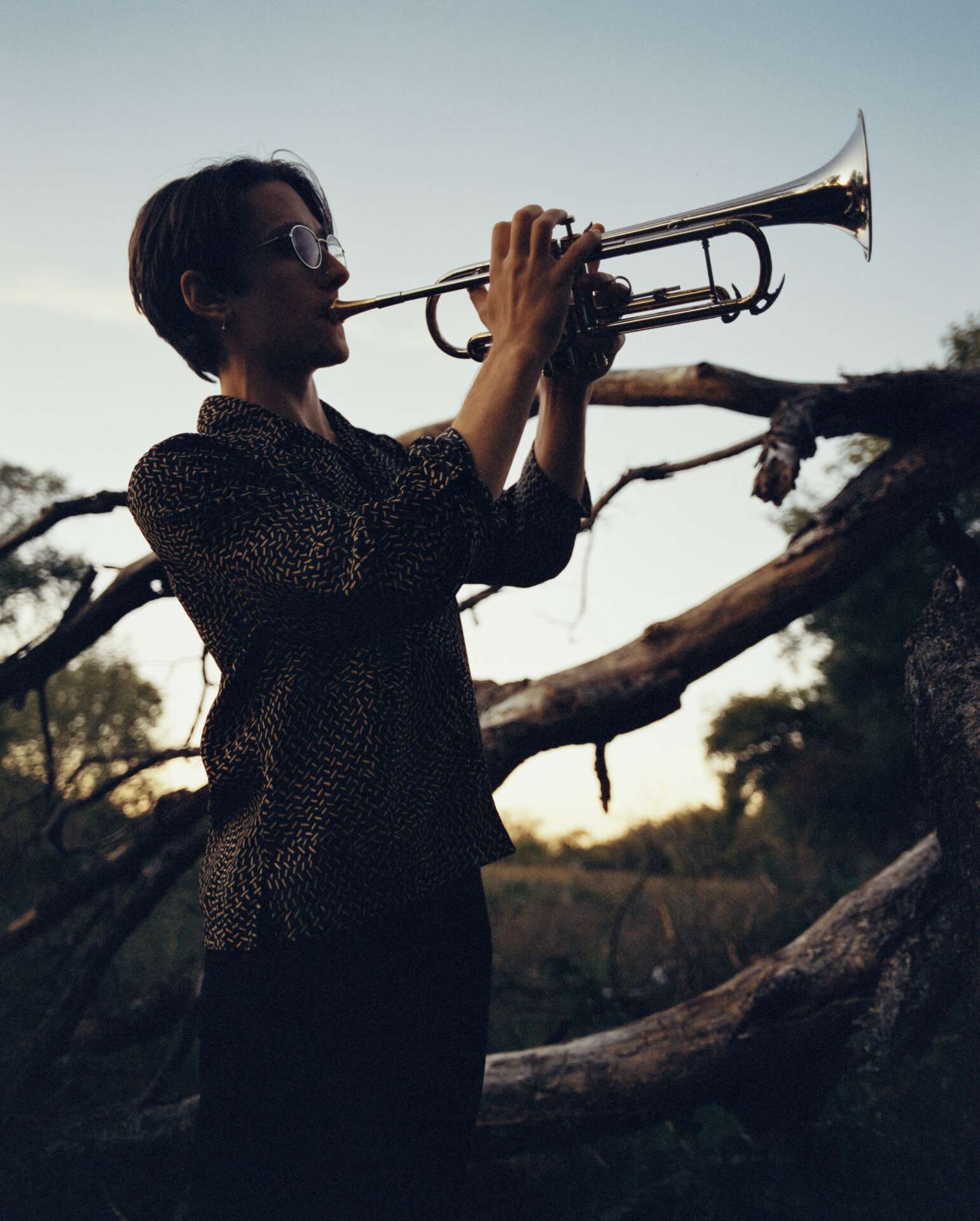We caught up with the brilliant and insightful Caleb Pitman a few weeks ago and have shared our conversation below.
Alright, Caleb thanks for taking the time to share your stories and insights with us today. Learning the craft is often a unique journey from every creative – we’d love to hear about your journey and if knowing what you know now, you would have done anything differently to speed up the learning process.
Studying the history and learning the craft of Black American music is something that I’ve practiced for about eight or nine years. I spent seven of those in various academic environments and two of them on my own as a freelance professional in Dallas, TX.
When I look back at my time in school, I’m grateful for how it helped me develop a strong work ethic, identify problems, solve them efficiently, and meet external deadlines. But since leaving joining an artistic community somewhat disparate from academia, I’ve learned so much more about how music feels and behaves. I’ve learned about how to lead a band, play to an audience, play something that satisfies both elitists and newcomers.
Practicing and growing as an artist independent from external deadlines and curricula is a wildly different experience. Here are some of the most important lessons that I’ve learned, relearned, or had deeply reinforced since moving away from school.
First: When things get squirrely on the bandstand let patience, groove, your ears, and the bass be your beacons. Be accepting and kind about every decision or “mistake” made on stage. When you share the bandstand with someone, you become family for at least that moment.
Second: Every artist has to find the right balance of curious obsession and disciplined work. No matter the medium, every artist will have to develop a creative muscle and a technical muscle. When in balance, these two muscles empower each other. When out of balance can detract from each other (strongly).
When I was a teenager, I primarily worked on improvisation and jazz music (because that’s what interested me) but my tone and general technique on the trumpet were quite poor. At university it quickly became evident that my lack of technical abilities were a tight bottleneck and that I had to open that bottleneck asap in order to continue growing. Very little creative desire fueled the practice that followed; it was almost all discipline. It reached a point at which I began to neglect my creative self. The hunger and curiosity that had once fueled and illuminated my practice was suffocating because I was so accustomed to using brute discipline to accomplish my goals.
Over the last year or so I’ve been actively searching for a good balance. Discipline is an essential skill for any professional artist and (I’m grateful that I have the ability to employ that work-ethic when I need it), but taking creative risks in your practice and chasing them with complete abandon for discipline is also an important part of being an artist.
Third: An artist should frequently make time to review, reflect, and reevaluate. When I was younger and less experienced, I would put on blinders and run as hard as I could just to look back after a couple months and realize that I should have focused all that energy into a totally different thing.
I had to learn to ask myself questions like: “Am I being focused enough right now?”, “Is this what I should be practicing in order to meet my goals?”, “Am I enjoying myself right now?”, “Can I achieve my goal with a more memorable and enjoyable method of practice?”.
Some ways that I work on my reflection are to keep a practice journal, record myself frequently, and watch myself in a mirror. One of my favorite ways to check myself has been to intentionally surround myself with musicians and mentors who will do it for me. This makes the process really easy; the most I have to do is simply ask. Of course, learning to take that feedback (and sometimes disrespect) with an enormous amount of grace and openness is a prerequisite skill for this kind of social environment.
Fourth (this one is purely business): Don’t trust anyone who’s paying you until they’ve earned it. Be intensely skeptical and professional. Protect your craft.
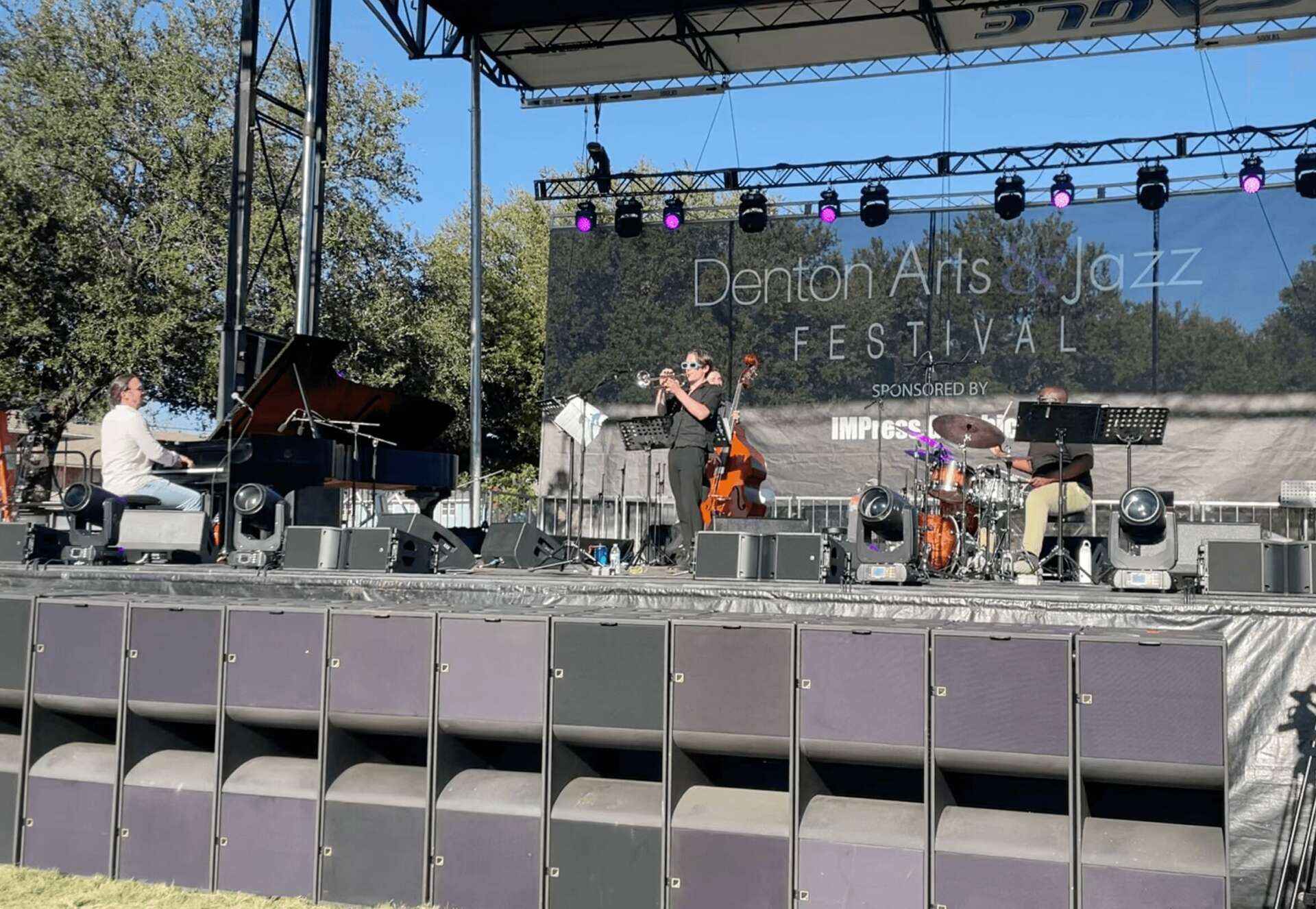
As always, we appreciate you sharing your insights and we’ve got a few more questions for you, but before we get to all of that can you take a minute to introduce yourself and give our readers some of your back background and context?
Though my first experiences with music were learning some really basic piano around the age of 7 or 8, I started playing trumpet in 2009 when I (reluctantly and by the will of my parents) enrolled in the school band in Maine. I eventually fell in love with it and began to seriously identify with it. I played in the school’s concert band, big band, pit orchestra, and more throughout the beginning of high school. In 2015, I moved to South Carolina and began attending a fine arts high school with a really excellent small-group focused jazz program. I studied there for three years before moving to study at the University of North Texas. Since graduating in 2022, I moved to Dallas to work in the scene and practice the craft. In the upcoming fall of 2024 I’ll be relocating to New York City.
As a professional musician in the 21st century, my skill set is pretty varied. I’ve performed and recorded in genres like jazz, pop, indie, metal, hip-hop, classical, funk, RnB. Occasionally I’m hired to arrange music or horn parts for events or special performances. I’ve also been hired to compose and produce songs for other people’s creative projects. Teaching is another big part of my profession and something that I’m deeply passionate about. I’ve taught privately as a freelance instructor, guest artist, and clinician for roughly 10 years and as an alumni representative for the University of North Texas for the better part of the last two years. All of these come together to create a multitude of income streams that are necessary for any modern-day artist.
I may be hired to do a lot of different musical tasks but my artistic identity lies with black-american music (widely called jazz music). There’s a duality of historical study coupled with modern reinvention that feels constantly refreshing and inspiring to me. Improvised music feels more alive, authentic, and human than lots of other music produced today. It’s about teamwork, patience, and daring risk-taking. Often I’ll learn and perform popular songs that are brand new or 100+ years old. And in every performance, the music is renewed because the tradition of this music is one that yields infinitely varied results.
I love to compose music. I love to compose music that channels some kind of energy or abstract emotion to the listener, can serve as a format for musical improvisation, and connect with the historical tradition of black-american music in one way or another. Accomplishing those goals without any lyrics is really challenging, but it’s a challenge that gives me a sense of purpose and a therapeutic way to reflect on and release my emotions.
Recently I’ve been experimenting with composing music based on poetry and paintings that I like or find moving. In the future I’d like to write music with lyrics, I just haven’t made the time to work on that yet.
You can listen to and learn more about my compositions on YouTube or via Buy me a Coffee.

Can you tell us about a time you’ve had to pivot?
Living in Dallas recently taught me a lot about how to pivot from one side of an artistic community to the other. And why I’d ever want to do so in the first place.
I moved to Dallas halfway through 2022 and within five or six months I started playing a lot of gigs in the city. I loved it. A lot of the people I was working with were musicians that I had looked up to for years and I could feel myself growing just from sharing a stage with them. My ego swelled too; I felt kind of popular and up-and-coming.
Unfortunately I started hearing some nasty rumors circulating on the street about one of the people that I was working with. The rumors were bad enough to where I was faced with some difficult questions: “should I keep working with this person?”, “how will I make up the money if I bail?”, “Why does everyone in this space tolerate someone like this?”.
One thing led to another, and I ultimately made the decision to take a break from that particular part of the Dallas music scene. I chose to take a big risk in order to prioritize my values and ethics over my own income and immediate professional exposure.
Surely enough, within weeks after I made that decision my freelance work began to dwindle dramatically. Thankfully I had a few other income streams to keep me afloat and so tightened my budget and got to work on sharpening my skills. I sought out mentors, worked on my technique on the trumpet, studied the history with greater intensity, and eventually began to pivot to other parts of the general DFW music community for additional work.
In retrospect it all seems quite simple: I just had to transplant from one subcommunity of the DFW music scene to another. Now I’m working more than ever before with people whose friendship and artistry feeds my soul every day. For me, the cherry on top is that I had such a rare opportunity to refocus, reevaluate, and basically level-up my musicianship.
My first two years in Dallas taught me how to pivot. It taught me to stand up for myself when I’m disrespected or working with someone whose actions conflict with my beliefs and values. Truth and excellence will forever be my highest priorities and while in Dallas, I learned that as long those two things remain in focus, everything else will come together.
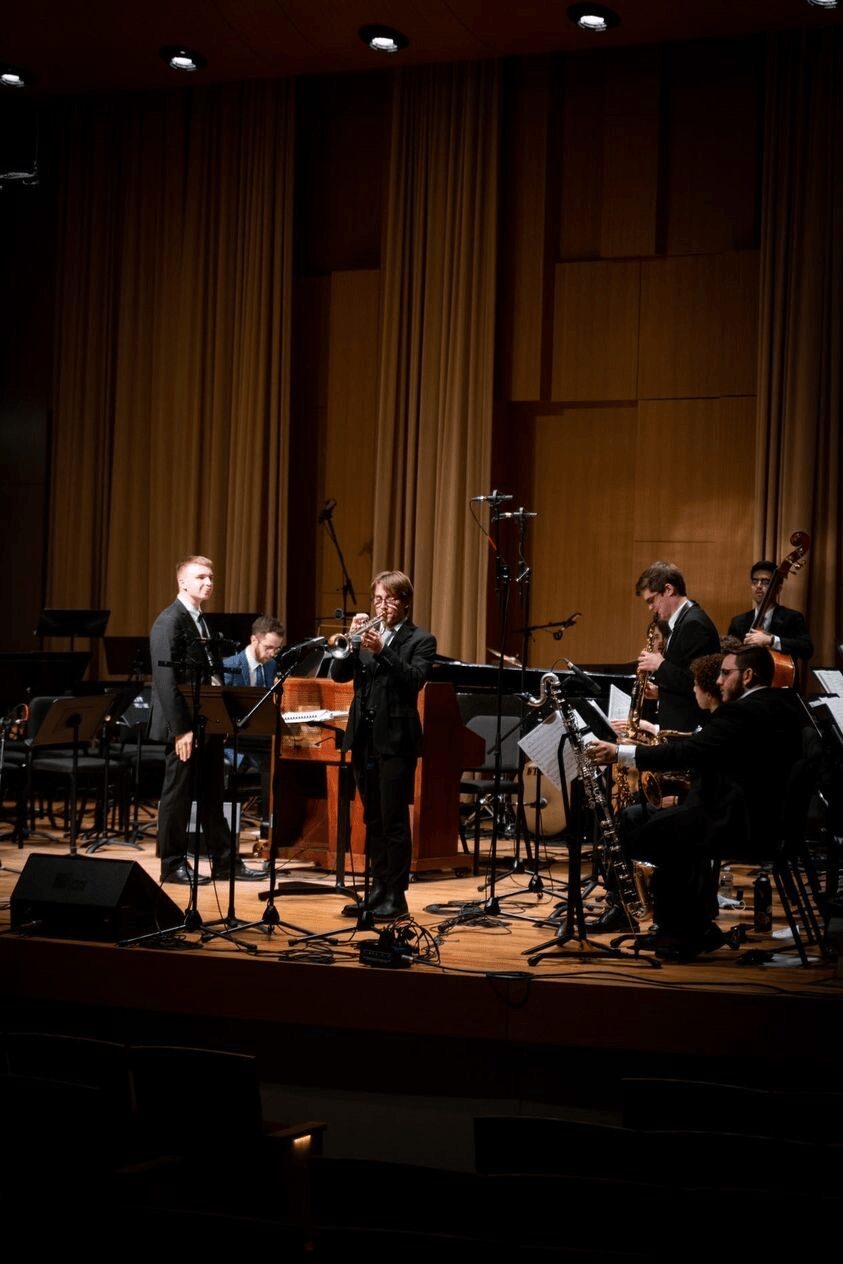
How can we best help foster a strong, supportive environment for artists and creatives?
For someone whose livelihood isn’t some form of art, evaluating the financial practices of platforms that provide them with art is the best way to support the general artistic community. Record labels, streaming services, management companies, even some music venues; all of these institutions that provide artists with a platform have an infamous history of screwing over the artist and taking an unreasonably large share of the total income.
Using something like Tidal over Spotify is a really simple way to support musicians a little more. 10% of your monthly subscription goes to whoever you listen to the most and the service’s per-stream rate is a little higher than Spotify’s or Apple Music’s. Buying digital downloads of your favorite tracks or episodes directly from the creator is even better. Sending the artist $2-$10 on Patreon, Buy Me a Coffee, Ko-Fi or a similar service will instantly get them more money than they would probably ever make from your individual Spotify/Apple Music/Youtube streams typically ever would.
Supporting live, local music is really important too. Usually in any given city there’s a deceptively large number of local artists who are playing live *all* the time. It can be kind of tricky to figure out your preferences at first, but if you poke around a few different venues and try to hear different musicians play, you’re sure to be pleasantly surprised by the level of artistry that can occur right in your hometown. Usually venues like bars and clubs don’t pay artists a whole lot to do their thing so dropping a few bucks in their tip jar is really helpful.
One might hire live music for a special occasion like an anniversary, birthday, wedding or corporate party. When searching through management companies to employ, I would inquire about how the finances flow in that business. How much of the money actually goes to the musicians? Is it reasonable? Booking companies should no doubt take a booking fee, but often that fee is upwards of half of what the client is paying. When possible, I always recommend hiring an individual musician or at least consulting multiple firms to see what the average local rate is for musicians.
I feel like I should mention AI at least once in this section. It is my opinion commercial music production will soon be partially, if not totally overtaken, by the use of AI. Engaging with authentically created, artistic, creative, live, and local music is more important than ever before.
Contact Info:
- Website: https://linktr.ee/caleb10000000
- Instagram: https://www.instagram.com/calebpitman/
- Youtube: http://www.youtube.com/@calebpitmantrumpet

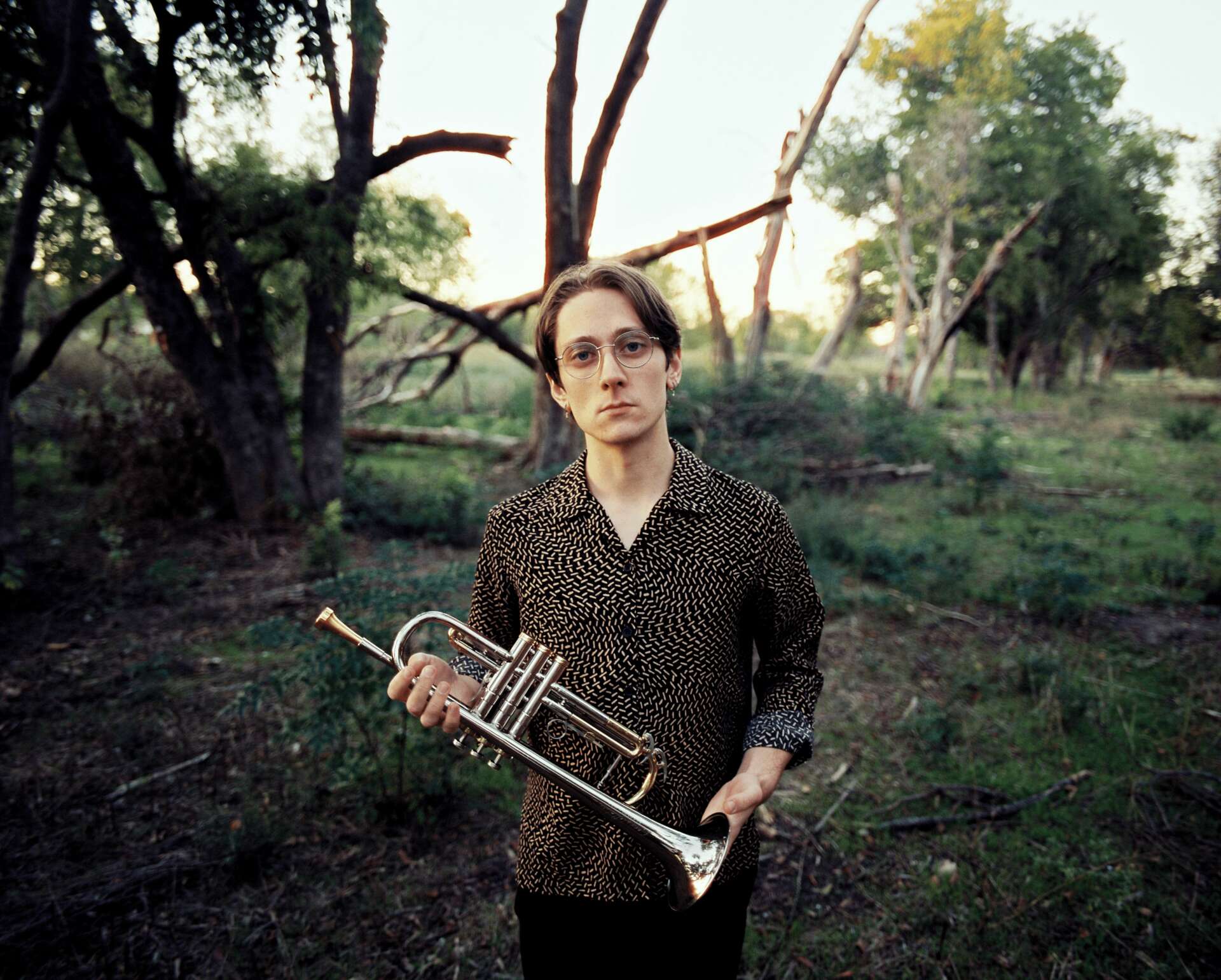
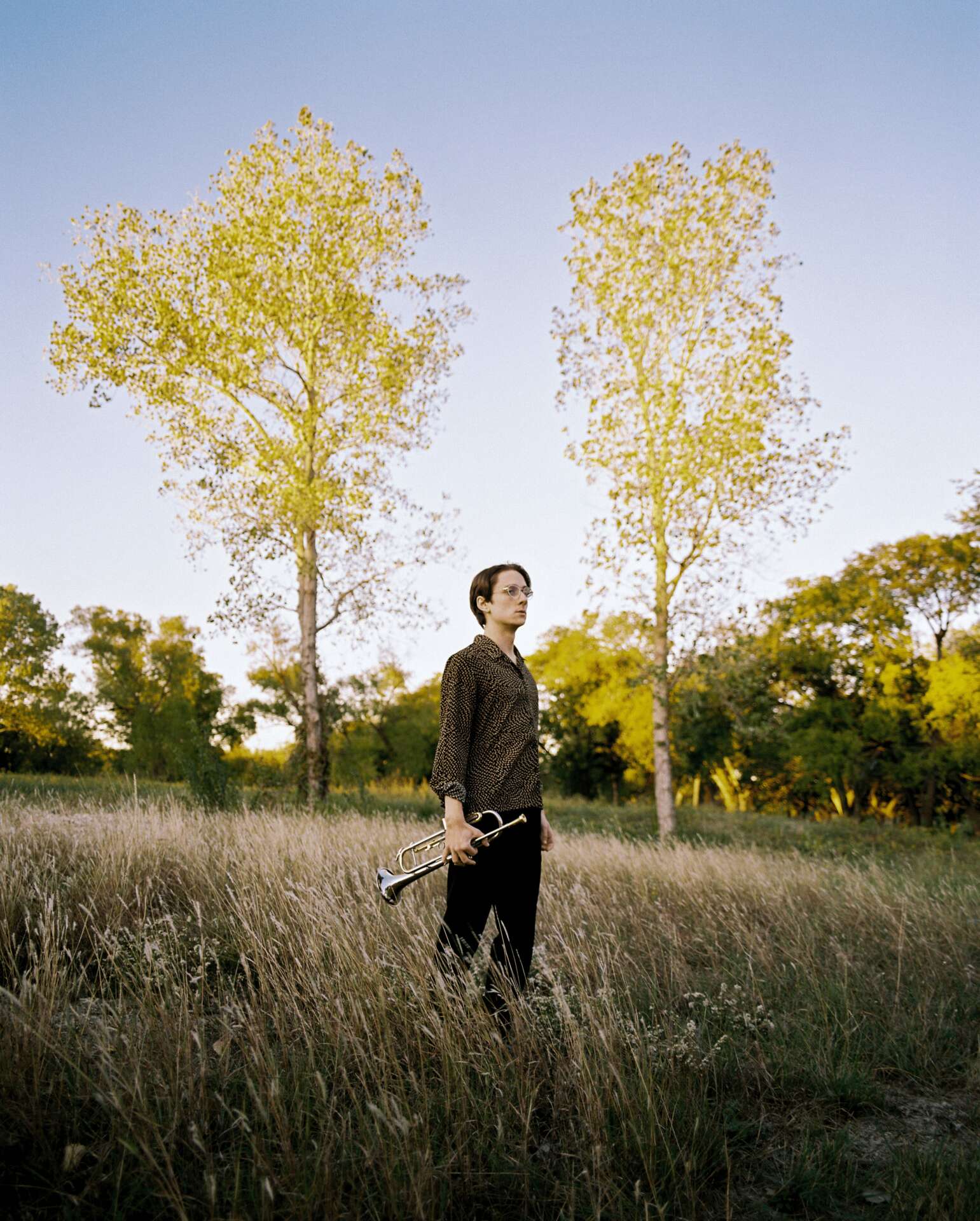
Image Credits
Katherine Tejada
Emilio Mesa


